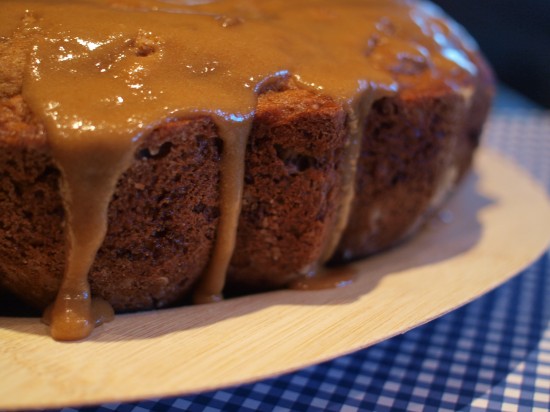 The other night I accidentally conducted what turned out to be a very interesting experiment. For several reasons I won’t bore you with, I went an entire night without sleeping. Which I’m pretty sure I haven’t done since finals week in college. As expected (And I know these kind of anxiety-ridden expectations just contribute to insomnia; I didn’t even need to be reminded of that fact at 3 a.m. by a super helpful spouse when he woke up briefly during his otherwise restful night’s sleep…), I was tired the next day. But I made it through.
The other night I accidentally conducted what turned out to be a very interesting experiment. For several reasons I won’t bore you with, I went an entire night without sleeping. Which I’m pretty sure I haven’t done since finals week in college. As expected (And I know these kind of anxiety-ridden expectations just contribute to insomnia; I didn’t even need to be reminded of that fact at 3 a.m. by a super helpful spouse when he woke up briefly during his otherwise restful night’s sleep…), I was tired the next day. But I made it through.
What I hadn’t expected, however, was how hungry I would be — I’m talking bottomless pit, black hole, just-ran-a-marathon hungry. I was not hungry for salads and grilled fish, either; I wanted sweets, carbs, and lots of gooey fat. This can happen when you’re hungover (so I’m told), but when I found myself seriously debating a third slice of cake at a school luncheon (and this was after I’d eaten not one but two lunches because I was so tired I’d completely forgotten about the lunch at school until I’d made and eaten a giant grilled cheese sandwich), I decided to do a little research on the relationship between sleep (or lack thereof) and eating.
More and more experts now believe that how much you sleep has a direct effect on your appetite. Which doesn’t seem like a huge deal in a country where food is plentiful and cheap — unless of course you’re trying to lose weight, interested in staying healthy and fit, or care about your diet in any way. Sure, eating chocolate chip waffles, grilled cheese sandwiches, and extra slices of cake every once in a while probably isn’t going to cause irreparable damage, but when you start to think about all the nights when you don’t get enough sleep (that’s at least 6-8 hours a night), then it seems like a more serious issue.
Sleep research has recently shown that hormones, specifically the hormones linked to feelings of hunger and fullness, are affected by sleep. When you don’t get enough sleep, it drives down levels of leptin, the hormone that tells your brain you’re full. Also, lack of sleep can cause levels of ghrelin, the hormone that stimulates your appetite, to rise. The result of both is that you want more food, even feel like you need more food. So…you get one of the worst effects of a hangover without enjoying even one glass of wine.
Alas, we all have trouble sleeping sometimes. But guess what? Eating also has an effect on how well you sleep. I’ve always heard that it’s unhealthy to eat right before bed — that those foods will be stored as fat, cause indigestion, and can lead to sleep apnea, etc. Apparently, however, that’s not exactly true. While it’s probably not a good idea to have a FourthMeal at Taco Bell at 10 p.m. (or any time, for that matter…sorry, friends), it turns out a bedtime snack is more than just a kids’ stalling technique. I realized that I had skipped dinner on that fateful sleepless night (long story involving pistachios and a large bowl of kettle corn) plus — the horror — I’d had a coffee at 3 p.m. Even though I felt a little hungry at bedtime, I didn’t eat anything. Apparently I broke several key get-more-sleep rules.
According to many nutritionists, it’s best to eat a light snack within an hour of bedtime. A combination of healthy carbs and a little protein will help release seratonin, your brain’s feel-good-and-mellow hormone, which helps you relax and fall asleep. The amino acid tryptophan (you know, the stuff you always moan about after Thanksgiving dinner) can be converted to seratonin, so it’s not a bad idea to eat foods that supply it, such as poultry (not just turkey, BTW), cheese, nuts, and eggs.
Here are some good Bedtime Snack Ideas: 1/2 egg-salad sandwich, 1/2 turkey sandwich, banana, PB&J, peanut butter-banana quesadilla, leftover chicken quesadilla, oatmeal with walnuts, yogurt with sliced almonds, granola with milk, etc. You get the idea. Not too big, not too spicy. Even a glass of milk would have been better than the big nothing I had.
I read the Mayo Clinic’s list of sleep tips, and it says to “pay attention to what you eat and drink.” More specifically, here are a few food-related suggestions for getting a better night’s sleep.
1) Eat a large breakfast and a moderate dinner. Large meals tend to raise your body temperature and heart rate, which can interfere with sleep. So, eat your largest meal of the day early in the day.
2) Finish dinner at least two hours before bedtime.
3) If you ate dinner early or feel even slightly hungry, eat a healthy snack within an hour of bedtime (see above).
4) Avoid MSG (monosodium glutamate), which has been shown to provoke insomnia (among other health concerns).
5) Limit alcohol. I’m not here to tell anyone not to drink, but even though it makes you feel drowsy, alcohol disrupts sleep. And the older you are, the worse the effect (or so I’ve heard). Just sayin’…
6) Cut caffeine. And don’t have any after 2 p.m. This includes coffee, tea, cocoa, etc.
If all else fails and you had a rough, sleepless night, don’t fret. It really does only make it worse. And if you’re starving for something delicious and cakey the next day, may I suggest Melissa Clark’s Lemony Olive Oil Banana Bread? It’s on the healthy side (-ish) and it’s incredible. See photo above.
Night, night!

B — I’m trying this starting today — a good night’s sleep would be such a bonus!!!!! xo